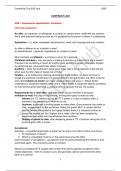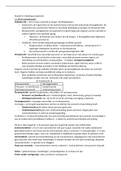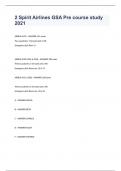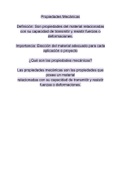Summary
Summary SQE 1 Contract Law
Introducing Contract Law notes from The SQE Hub specifically tailored by addressing each of the assessment specifications listed on the SRA website. These high yield notes are an amazing revision aid and address the following: - Formation; - Parties; - Contract terms; - Vitiating factors; - T...
[Show more]












